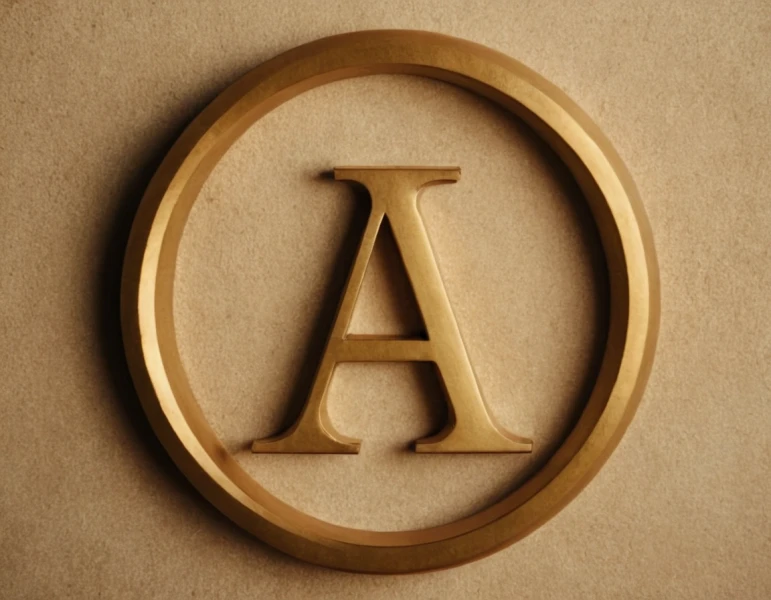Educa UNIVERSITY|BUSINESS
The Greek Alphabet: A Personal Journey Through Its Letters
Related Masters
The Greek Alphabet: A Personal Journey Through Its Letters
Hello! I'm Carlos Hidalgo, and today I want to take you by the hand through a fascinating journey: the Greek alphabet. Throughout my life, I have had multiple encounters with these letters that, although they seem exotic, are more present in our daily lives than we imagine. Do you dare to discover it with me?
Origins of the Greek Alphabet
To understand the Greek alphabet, it is essential to go back to its roots. This writing system was developed around the 9th century BC, derived from the Phoenician alphabet.
The Phoenicians, great traders of antiquity, needed an efficient method to record their transactions, and their consonantal alphabet was the solution. However, the Greeks adapted and perfected this system, introducing vowels, thus creating the first complete alphabet in history.

The 24 Letters of the Greek Alphabet
The Greek alphabet consists of 24 letters, each with its own distinctive character and sound. Here I present to you a table with the uppercase and lowercase letters, their name and an approximation of their pronunciation:
| Letter Uppercase | Letter Lowercase | Name | Pronunciation. Aproximada | |||
|---|---|---|---|---|---|---|
| Α | α | Alfa | /a/ | |||
| Β | β | Beta | /b/ | |||
| Γ | γ | Gamma | /g/ | |||
| Δ | δ | Delta | /d/ | |||
| Ε | ε | Épsilon | /e/ | |||
| Ζ | ζ | Zeta | /z/ | |||
| Η | η | Eta | /eː/ | |||
| Θ | θ | Theta | /tʰ/ | |||
| Ι | ι | Iota | /i/ | |||
| Κ | κ | Kappa | /k/ | |||
| Λ | λ | Lambda | /l/ | |||
| Μ | μ | Mu | /m/ | |||
| Ν | ν | Nu | /n/ | |||
| Ξ | ξ | Xi | /ks/ | |||
| Ο | ο | Ómicron | /o/ | |||
| Π | π | Pi | /p/ | |||
| Ρ | ρ | Rho | /r/ | |||
| Σ | σ/ς The letter Sigma has two lowercase forms: 'σ' is used at the beginning and in the middle of words, while 'ς' is used at the end.My First Encounter with the Greek AlphabetI distinctly remember my first year in college, when I was faced with the dreaded advanced mathematics. Upon opening the textbook, I was confronted with unfamiliar symbols: α, β, γ.... It seemed like I was reading in another language! It was then that I understood the importance of the Greek alphabet in the sciences. The Greek Alphabet in Science and MathematicsThe Greek alphabet has left an indelible mark in various scientific disciplines. In mathematics, letters such as π (pi) represent fundamental constants. In physics, λ (lambda) denotes wavelengths, and in chemistry, Δ (delta) indicates changes in energy. This tradition dates back to the ancient Greeks, who laid the foundation for many of these sciences. Curiosities of the Greek Alphabet
The Evolution of the Greek AlphabetOver the centuries, the Greek alphabet has evolved. Initially, only uppercase letters existed. The lowercase letters appeared in Byzantine times, around the 9th century AD, adapting to the needs of writing on papyrus and parchment. The Greek Alphabet in Popular CultureToday, the Greek alphabet transcends the borders of Greece and academic classrooms. It is commonly seen in university fraternity and sorority names, in star and constellation designations, and even in hurricane nomenclature. My Personal Connection to the Greek AlphabetThroughout my career as an engineer, the Greek alphabet has been a constant tool. From mathematical formulas to physical equations, these letters became inseparable companions. But beyond their practical usefulness, the Greek alphabet has been a constant tool. FacultiesTrainingsThe faculties embrace diverse academic disciplines and fields of study, opening doors to new perspectives and exploring different spheres of wisdom in a constantly evolving world. Legal Notice • Enrollment Conditions • Privacy Policy • Cookie Policy• Copyright @ 2024 • Educa University Powered by 
|













